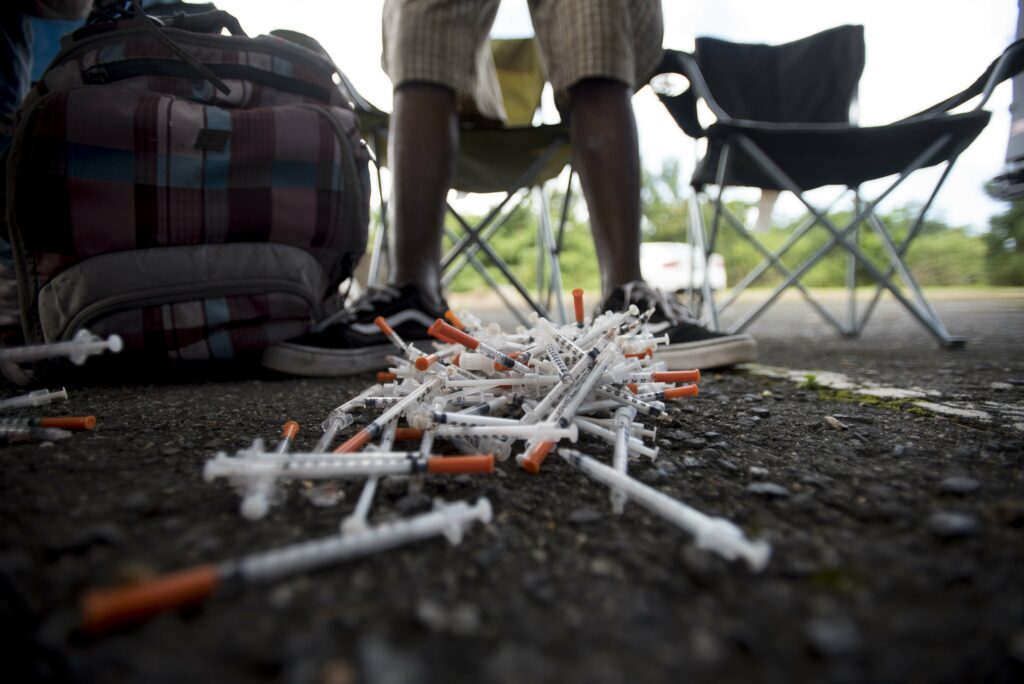What is Fentanyl? Fentanyl is a synthetic opioid that is 50-100 times more potent than morphine. It is used medically for pain management, but has also become a popular street drug. Due to its potency, fentanyl has caused a significant increase in overdose deaths in recent years. Learn more about this dangerous drug and its effects here.
What is fentanyl and how is it used?
Fentanyl is a synthetic opioid that is primarily used for pain management in medical settings. It is often prescribed to patients with chronic pain or those undergoing surgery. However, due to its potency, fentanyl has also become a popular street drug. Illicit fentanyl is often mixed with other drugs, such as heroin or cocaine, to increase their potency. This can be extremely dangerous, as even a small amount of fentanyl can cause an overdose.
Why is fentanyl so dangerous?
Fentanyl is so dangerous because it is incredibly potent. In fact, it is estimated to be 50-100 times more potent than morphine. This means that even a small amount of fentanyl can cause an overdose. Additionally, because fentanyl is often mixed with other drugs, users may not even be aware that they are taking it. This can lead to unintentional overdoses and deaths. Fentanyl is a serious public health concern and it is important to be informed about its dangers.
Fentanyl is a synthetic opioid that is used medically to treat severe pain, such as that experienced by cancer patients. However, it is also produced illegally and sold on the black market. Because it is so potent, it is often used to cut other drugs, such as heroin or cocaine, to increase their potency. This makes it difficult for users to know exactly what they are taking, and increases the risk of overdose. Fentanyl can cause respiratory depression, which can lead to death if not treated immediately. It is important to be aware of the dangers of fentanyl and to seek help if you or someone you know is struggling with addiction.
What are the signs of fentanyl overdose?
Fentanyl overdose can be deadly and it is important to recognize the signs and seek immediate medical attention. Symptoms of a fentanyl overdose include slow or shallow breathing, extreme drowsiness or confusion, pinpoint pupils, blue or pale skin, and limpness or unresponsiveness. If you suspect someone has overdosed on fentanyl, call 911 immediately. Naloxone, a medication that can reverse the effects of an opioid overdose, should also be administered as soon as possible.
What can be done to prevent fentanyl-related deaths?
There are several steps that can be taken to prevent fentanyl-related deaths. First, it is important to increase awareness about the dangers of fentanyl and educate the public about the signs of an overdose. Second, access to naloxone should be expanded to ensure that it is readily available to those who need it. Third, efforts should be made to reduce the supply of fentanyl and other illicit drugs through law enforcement and border control measures. Finally, treatment and support services should be made available to those struggling with addiction to help prevent overdoses and promote recovery.
While Puerto Rico has a lower rate of fentanyl-related deaths compared to other states in the US, it is still important to take steps to prevent these tragedies from occurring. One way to do this is to increase awareness about the dangers of fentanyl and educate the public about the signs of an overdose. This can be done through public health campaigns and outreach efforts. Additionally, access to naloxone, a medication that can reverse the effects of an opioid overdose, should be expanded to ensure that it is readily available to those who need it. This can be done by making naloxone available at pharmacies and training first responders and community members on how to administer it. Efforts should also be made to reduce the supply of fentanyl and other illicit drugs through law enforcement and border control measures. Finally, treatment and support services should be made available to those struggling with addiction to help prevent overdoses and promote recovery. By taking these steps, we can work towards preventing fentanyl-related deaths and promoting a healthier, safer Puerto Rico.



